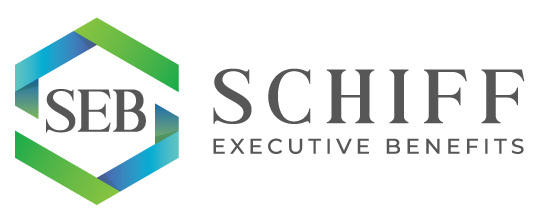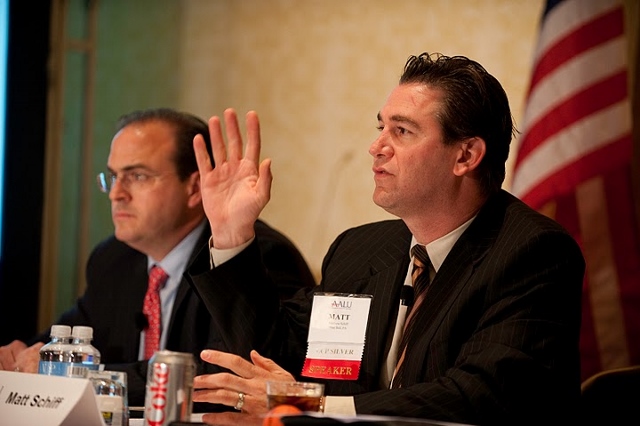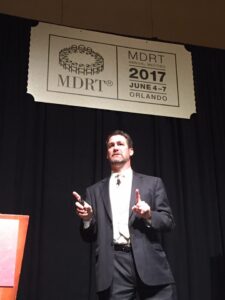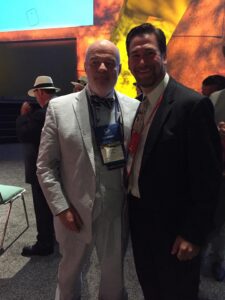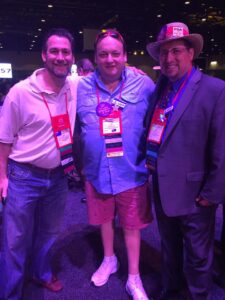Phantom Stock Plans
Phantom stock plans are written contractual arrangements between the company and the key employee which are designed to mimic actual stock ownership. These plans generally involve the granting of a stated number of stock units which are credited to the key employee’s account. Each unit has the equivalent value of an outstanding share of the employer’s common stock. The benefit provided to the key employee under the simplest form of phantom stock plan equals the appreciation in the value of the “phantom” stock between the date the employee is credited with the phantom shares and the date the benefit is paid.
Instead of merely paying a benefit equal to the appreciation in value of the “phantom” stock between the date the “phantom” shares are granted and the payment date, it is possible to structure the benefit so that it equals the entire value of the “phantom” shares as of the payment date. In addition, if the intent is to closely mimic actual stock ownership, the key employee’s “phantom” stock account could be credited with all cash, stock dividends, and stock splits which are attributable to the “phantom” shares.
Payment of the benefit generally occurs upon termination of employment as a result of retirement, death or disability, or at a specified future date, depending upon the company’s preference. The benefit can be paid out in installments (either in cash or common stock of the company) over a period of years. Generally, the benefits are paid in cash because the company does not want the key employee to actually have direct stock ownership.
Consequences of Phantom Stock Plan
A. Key Employee – No tax is payable by the key employee at the time the “phantom” stock is credited to the employee’s account. The employee is taxed when the benefit is actually paid and there is no further substantial risk of forfeiture.
If the plan is designed to make annual payments to the phantom plan participants to replicate the cash and stock distributions made to the company’s actual stockholders, the payments are taxable to the phantom plan participant as ordinary income and deductible to the company when paid.
B. Company – There is no deduction available to the company upon the initial crediting of the “phantom” stock to the employee’s account under the phantom stock plan. When the employee is paid the benefit, the company is entitled to a compensation deduction for the same amount as the employee includes in income.
C. Compliance with Employee Retirement Income Security Act of 1974 (ERISA) – Phantom stock plans are generally designed as “top hat” plans which are unfunded and maintained by the company for a select group of management or highly compensated employees. This exempts the plan from most of ERISA’s provisions. In order to comply with the ERISA reporting requirements for “top hat” plans, there is a one-time filing with the United States Department of Labor.
D. Informal Funding – While the payment of the plan benefits cannot be “secured”, it is possible to informally fund the benefit payments by having the company accumulate cash, or other asset, or purchase a life insurance policy on key employees’ lives. However, the policy cash value, as well as the death benefit, must be subject to the general creditor claims of the company in order to avoid the arrangement being treated as a “funded” arrangement.
E. Accounting – The company must charge its earnings with compensation expense over the period during which the phantom stock is outstanding in an amount equal to the fair market value of the value accrued to the employee under the plan.
F
. Compliance with Section 409A – Section 409A of the Internal Revenue Code was enacted as part of the American Jobs Creation Act of 2004 and sets forth various requirements relating to deferred compensation plans. A phantom stock plan is a form of deferred compensation and will need to be carefully structured to avoid any adverse tax consequences to the key employee under Section 409A. If the plan fails to satisfy the requirements of that section, the key employee would be taxed on the unpaid amount deferred under the plan and would be subject to penalties. Correctly structured the plan should qualify under Section 409A so that there will not be a problem of the key employee having income before the benefit is actually paid.
Issues to Consider
For companies that want to offer their key employees the opportunity to share in the company’s success without giving up an actual equity stake in the company, phantom stock plans provide a great deal of flexibility. Because these plans are written contractual relationships, the company is not subject to the legal requirements which would normally apply if the key employee received actual stock. The plan may be creatively structured with measuring criteria and vesting schedules that act as “golden handcuffs” to retain valued employees and to align the key employees’ interests with those of the company.
In determining whether to implement a phantom stock plan, some of the considerations are as follows:
1. Which key employees will participate? In order to obtain exemption from most of ERISA provisions, the plan must be designed to benefit a select group of management or highly compensated employees.
2. When will the “phantom” shares be granted and when will they vest?
3. What will be the cutoff or triggering events requiring payment (i.e., death, disability, retirement, termination of employment or a specific date)?
4. How is the payment of the benefit to be made? Generally it will be made in cash as opposed to the company stock. Will the company have sufficient cash to pay the benefit?
5. Should the obligation of the company be informally funded through the acquisition of life insurance policies on the lives of those individuals covered by the phantom stock plan or with other investments?
6. Will the compensation liabilities shown on the company’s books as a result of the phantom stock plan have any adverse effects on the company’s ability to obtain financing?
7. Will the payment of the benefit be in one lump sum or spread over a period of time?
8. How many “phantom” shares will be initially granted? Will there be any crediting for the equivalent of any cash dividends, stock dividends, or stock splits which would be attributable to the phantom shares? Keep in mind that the “phantom” shares while not direct equity interests in the company, dilute the existing equity of the company’s shareholders by reducing assets by the value of the new obligations.
9. How will the valuation of the company be conducted in order to determine the value of the shares? The associated costs of the valuation need to be incorporated into the decision to implement a phantom stock plan.
Examples of plan designs:
- Employer will create a performance metric equal to a fixed dollar amount or percentage of profits, each year the value of the funds put aside will grow based upon the growth of the business or fixed rate of return
- Employer may assign a number of shares to the key person based upon a percentage of salary, which may or may not tie into the performance of the company.
- Employer might create a straight non-qualified “profit share” equal to a percentage of earnings and each year those funds could increase in value but not vest until retirement, change of control or death of the primary shareholder – thus creating a true golden handcuff.

